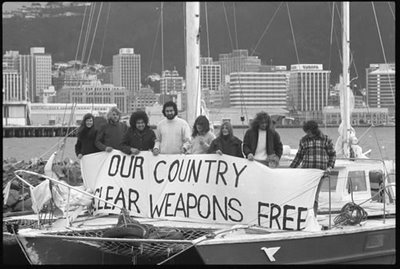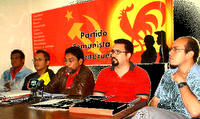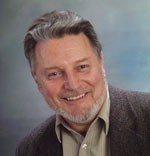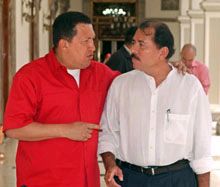
Cheryl Gwyn is one of NZ's most powerful and influential lawyers. Currently she is
acting Chief Executive and Solicitor-General, Crown Law Office.
Gwyn graduated in 1979 from Auckland University with a BA in Political Studies and English and an LLb Hons.
Her legal career didn't start however until the late '80s when she joined Chapman Tripp after two years as an investigator with the Race Relations Offfice.
Gwyn spent ten years at Chapman Tripp, half as a partner.
In 1996 Gwyn joined Russell McVeagh as a partner in Wellington where she concentrated on employment and human rights law.
In 2001, Gwyn entered the public service as Deputy Secretary of Justice (Public Law) to replace Dr Matthew Palmer. Gwyn's role focused on areas of Treaty Relationships, Constitutional Law, Human Rights/Bill of Rights, Access to Justice, Electoral, Family, Commercial and Property Law.
In 2003 The Solicitor-General announced the appointment of Cheryl Gwyn, as the new Deputy Solicitor-General (Constitutional.
In her new role Gwyn led the following Crown Law Office teams;
Employment Team The Employment team acts for the government on employment matters. This includes providing advice on human rights issues which arise in this context and also in certain other related or specialised areas such as the administration of penal institutions.
Human Rights Team The Human Rights Team is concerned with matters relating to the New Zealand Bill of Rights Act 1990, and general human rights issues. This team frequently works with other Crown Law Office teams on such matters as well as providing advice directly to government departments and ministries.
Law Officer Team The Law Officer Team provides specific legal and administrative support for the statutory functions of the Attorney-General and Solicitor-General. This includes supporting the Attorney-General as protector of charities and facilitating a number of international functions such as extradition and letters of request for taking overseas evidence. The team also administers the appointments of QueenÂs Counsel and Judges to the High Court and Court of Appeal.
Treaty Issues and International Law Team The Treaty Issues and International Law team works on the legal and historical issues arising from claims made under the Treaty of Waitangi. It represents the government before the Waitangi Tribunal and the courts. In recent years, developments in the impact of New Zealand's international obligations on New Zealand law have provided another area of responsibility for the team.
Gwyn acted for the Crown when the Security Intelligence Service tried to have suspected terrorist Ahmed Zaoui deported from NZ. She was involved in the recent battles over election spending and Parliamentary Services. She has been involved in human rights issues both in NZ and the Pacific.
Clearly Cheryl Gwyn is an extremely accomplished and influential woman.
Did anyone notice the gap in Cheryl Gwyn's CV? The years between leaving university and joining the Race Relations Office?
What was she doing during this time?
According to the Christchurch Press of the 23rd of October 1996, after graduating from law school, Gwyn spent six years working on the chain at Whakatu Meat works near Hastings "
to see a bit of life". At Whakatu, Gwyn was also involved in fighting the union to allow women to become butchers. That battle was won by 1985.
Why would a highly qualified lawyer want to work in a meat works? Why not tour Europe or Asia? Why not sail a yacht around the Mediterranean or work for a high powered legal firm in London? Why not work in a pub in Scotland?
I believe the answer to this question lies in decisions made in New York in 1978 by the leadership of a Trotsyist/Castroite political organisation, the Socialist Workers Party.
According to US political website
Our CampaignsThis period was the peak of the Socialist Workers Party's growth and influence. Nonetheless, this growth had stalled in the late 1970s after the end of the Vietnam War and the organisation was at an impasse. Despite which the leadership, now based around a group formed around the figure of Jack Barnes, decided that the key task was for party members to make a "turn to industry".
This turn entailed party members getting jobs in blue collar industries in preparation for the coming mass struggles which Barnes argued were coming. The result was the movement of many members and their systematic uprooting often out of established careers and into low paying jobs in small towns. True to slavelike form, the SWP's New Zealand affiliate, the Socialist Action League followed orders from New York.
Virtually every member of the SAL (the majority of whom were university educated), went to work in railway workshops, biscuit factories, fish processing plants and meat works.
The SAL set up branches in some provincial towns, including Invercargill and Hastings.
The "turn to industry" policy was the reason a Phd in Sociology like Keith Locke spent several years working in the Woburn Railway Workshops and at Gear Meatworks.
It is why a qualified doctor like Felicty Coggan (nee Brereton) was, while a communist candidate for the Auckland mayoralty, working as a sewing machinist.
Was Cheryl Gwyn involved with the SAL?
In 1981, the SAL's newspaper, Socialist Action (March 26th)reported on a meeting
in Hastings, the "Salvador Solidarity Week" forum organised by the Nicaragua Solidarity Committee and addressed by Cheryl Gwyn. While headed at one time by
Nicky Hager, the NSC was also full of SAL members, including Keith Locke, Matt Robson, Brendan Gleeson, Steve Hyde and Pat Starkey.
On February 19th 1982, Whakatu worker Cheryl Gwyn wrote a report for SA on the Oringi meat works dispute.
On October 1st 1982, Cheryl Gwyn of the Young Socialists, addressed a Hastings demonstration on Aboriginal land rights (SA 8th October). The Young Socialists were the youth wing of the SAL. Virtually all YS leaders were also SAL members.
In SA, December 10th 1982, Gwyn named Nadia Makea and Linda Harris as SAL members. Both were workers at Growers Canneries Ltd, Hastings. They had their houses searched by the police for drugs, but nothing was found.
On April 6th 1984, Gwyn wrote an article in SA, explaining that as a slaughterboard labourer at Whakatu, she has applied for the learner chain. This position was traditionally reserved for men only.
According to SA May 18th 1984 Cheryl Gwyn addressed a Young Socialists hui at Palmerston North's, Camp Rangi Woods.
I think the evidence is strong. The Socialist Action League gave us Green Party MP Keith Locke and former Alliance Party cabinet minister, Matt Robson.
Did it also give us Cheryl Gwyn, acting Chief Executive and Solicitor-General, Crown Law Office?


























